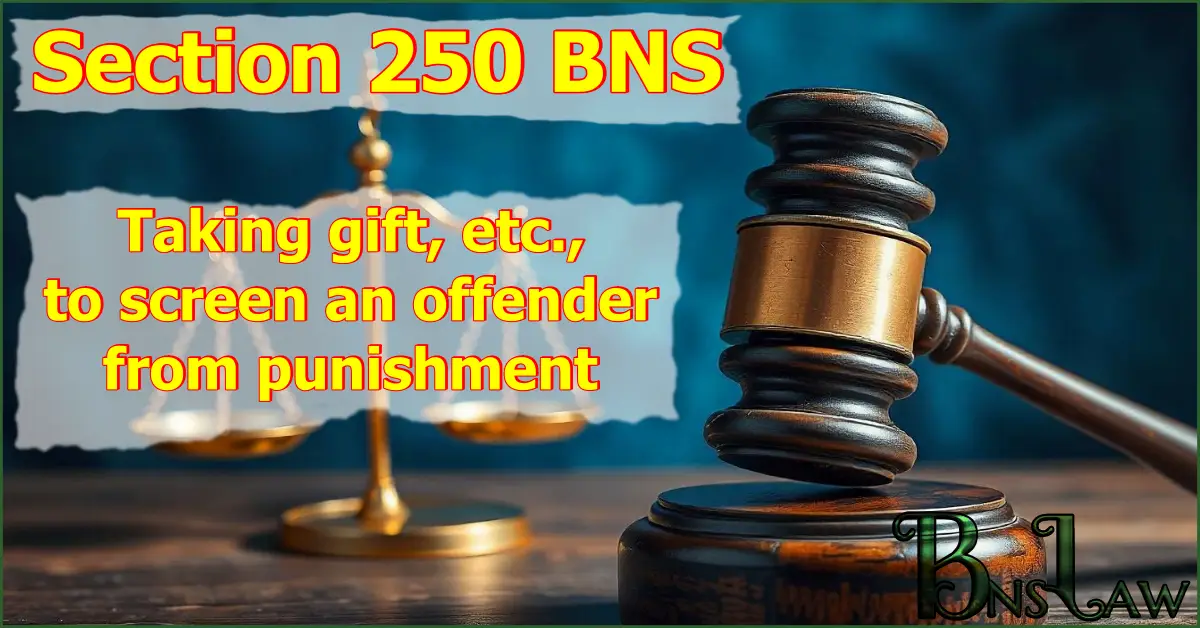Section 250 BNS | BNS 250
Whoever accepts or attempts to obtain, or agrees to accept, any gratification for himself or any other person, or any restitution of property to himself or any other person, in consideration of his concealing an offence or of his screening any person from legal punishment for any offence, or of his not proceeding against any person for the purpose of bringing him to legal punishment shall,—
250(a) BNS
if the offence is punishable with death, be punished with imprisonment of either description for a term which may extend to seven years, and shall also be liable to fine;
250(b) BNS
if the offence is punishable with imprisonment for life, or with imprisonment which may extend to ten years, be punished with imprisonment of either description for a term which may extend to three years, and shall also be liable to fine;
250(c) BNS
if the offence is punishable with imprisonment not extending to ten years, be punished with imprisonment of the description provided for the offence for a term which may extend to one-fourth part of the longest term of imprisonment provided for the offence, or with fine, or with both.
READ OTHER SECTIONS OF CHAPTER XIV — OF FALSE EVIDENCE AND OFFENCES AGAINST PUBLIC JUSTICE
FAQs of BNS Section 250
-
250 BNS punishment and fine
Punishment and fine under Section 250 of the BNS—
250(a): Imprisonment for 7 years and fine.
250(b): Imprisonment for 3 years and fine.
250(c): Imprisonment for one-fourth of the longest term provided for the offence, or fine, or both. -
250 BNS cognizable or not
The offence under Section 250(a), 250(b) and 250(c) of the BNS is cognizable.
-
250 BNS bailable or not
The offence under Section 250(a), 250(b) and 250(c) of the BNS is bailable.
-
250 BNS trial court
Offence specified in Section 250(a), 250(b) and 250(c) of the BNS is triable by the Magistrate of the first class.
Important Points
- Cognizable Offences: These are offences where a police officer can arrest a person without a warrant.
- Non-Cognizable Offences: These are offences where a police officer cannot arrest a person without a warrant.
- Bailable Offences: These are offences where the accused can get bail from the police station itself. All bailable offences are listed in the First Schedule of the Bharatiya Nagarik Suraksha Sanhita (BNSS).
- Non-Bailable Offences: Offences in which bail is not granted directly from the police station but after hearing the case in the court, the judge decides when bail will be granted. All non-bailable offences are listed in the first schedule of the Bharatiya Nagarik Suraksha Sanhita (BNSS).
- In the above FAQ, “trial court” means the court that has jurisdiction to try the offence.
- In the above FAQ, the expression “Magistrate of the first class” and “Any Magistrate” does not include Executive Magistrates.
Read other Sections of the BNS
Reference Link: New Criminal Laws (BNS), Ministry of Home Affairs







